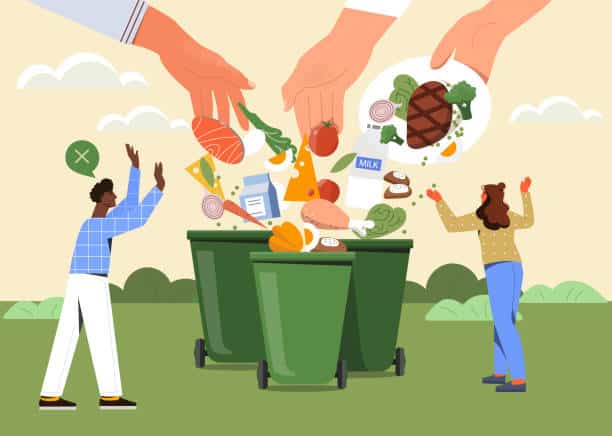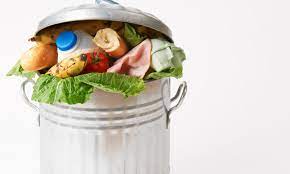
What is food waste?
Even though the phrases “food loss” and “food waste” are generally used interchangeably, there is a difference between them. While food waste occurs at the retail and consumer side (in shops and at home), food loss happens earlier in the supply chain (at the production, processing, and transportation… of food). Simply put, food waste refers to food that is fit for consumption but discarded. In this column, I will focus on food waste.

What do we know?
As the world’s population continues to grow, the demand for food is also increasing. However, instead of producing more food, we should focus on utilizing efficiently and sustainably the available food. A simple and effective way to do this is to immediately reduce food loss and waste. Considering that an estimated 828 million people are hungry worldwide (FAO, 2022) and approximately 1.3 billion tonnes of food get lost or wasted (UNEP 2021), tackling food waste/loss issues can ensure food security and better nutrition for all. Besides the hunger reduction benefits, stopping food wastage is crucial to sustainable food systems that enhance the efficient use of natural resources and address climate change. We all have a role to play (students, NPOs, governments, the private sector, civil society, development, researchers, and consumers). It has been reported that 61% of food wasted in 2019 (nearly 570 million tonnes) occurred at the household level (UNEP 2021). This shows the pivotal role of consumers who have the moral responsibility to act now. As such, what can be done at the individual level?
What can we do?
In Japan, it is estimated that the equivalent of a bowl of rice (approximately 132g) is thrown away per person every day. Why don’t we try to reduce food loss/waste by valuing the spirit of “Mottainai,” which is an important Japanese culture? It is time to react. Our actions count no matter who we are, what we do, and where we live. Responsible food consumption, self-awareness, and compassion for those in need are ways toward a world where no one is left behind. These are simple things we can do to reduce food waste:
- Only buy what we need
- plan meals ahead and freeze excess food
- use leftovers for cooking new food
- share the excess food with food banks or with people in need
- consume edible peels of fruits and vegetables such as apple peels
- support the local economy by buying ingredients from farmer’s markets
- buy products located at the front of the shelves, which are usually avoided by clients in grocery stores (Temaedori)
- use remaining food to make compost
- buy the so-called “ugly” fruits and vegetables which are avoided. They have the same taste as normal fruits and vegetables
- remember that products that exceed their “Best Before” date might still be edible. Trust your sense! However, DO NOT EAT produce after their “Use by” date!

Let’s all do our best to cultivate the mottainai mindset by reducing food waste for the people and for the planet.
Written by A. Fawaz Bagoudou, Ph.D., Assistant Professor in Food Science at Shinshu University; Sustainable Food Systems Advocate.

